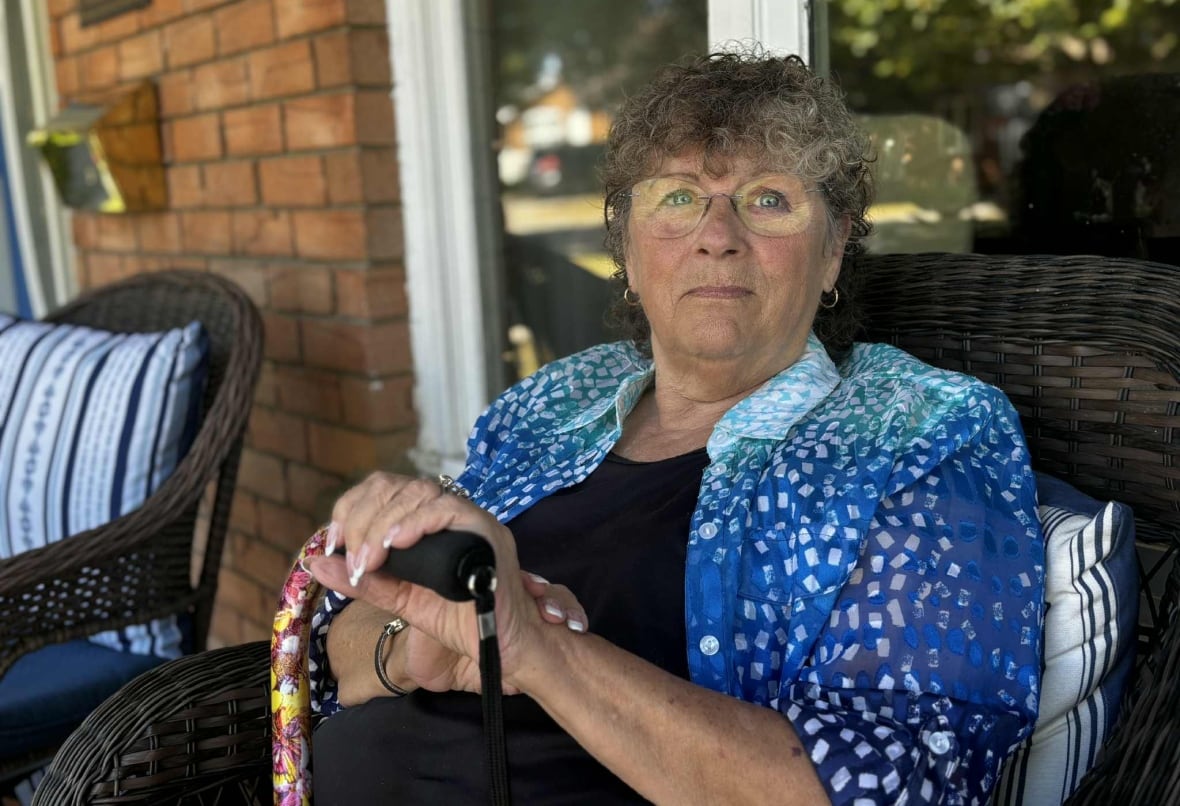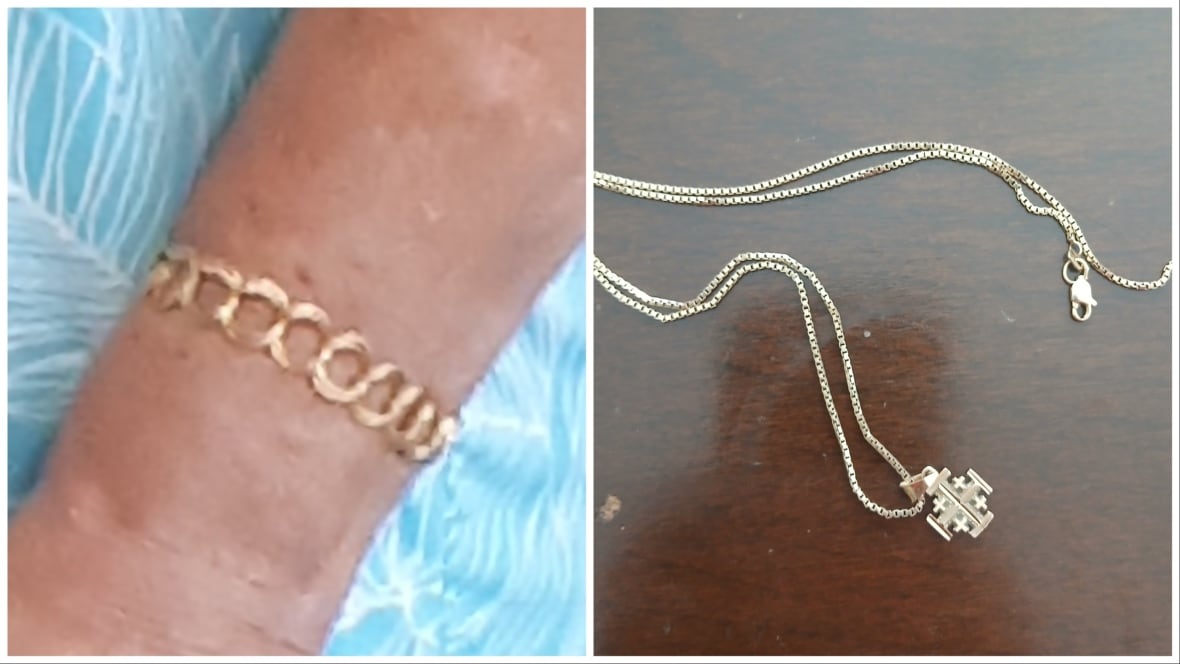This Ontario woman's jewelry was quietly stolen from her body. Police warn of rise in distraction thefts

Gail Hoevenaars of London, Ont., thought she and her husband were being Good Samaritans when they stopped to help the driver of a vehicle who called them over to ask for directions to Costco.
The Hoevenaars were walking down the street in the residential neighbourhood of White Oaks on Sunday afternoon when a light grey vehicle with three people inside slowed next to them. While her husband shared directions with the driver, Hoevenaar spoke to the two women in the passenger and back seats.
"This older woman asked me to come to the car, and she took my hand and started putting these chains around my wrists," Hoevenaar recalled. "Then a younger woman came from the front seat and started telling me that her mother was in hospital having heart surgery and if I could please pray for her.
"She hugged me and put a chain around my neck, then she got back in the car and they took off."
Minutes later, Hoevenaar realized the car's occupants left with more than just directions — they also had taken two pieces of her cherished jewelry.

"I felt violated. I felt awful. I thought I was going to be sick," she said. "I trusted these people and they stole from an old woman using a cane."
The thefts have since been reported to London police, who twice this year have issued warnings to the public to beware of distraction tactics.
Police in various Canadian cities also report a rise in such crimes.
Toronto police also warned the public earlier this month, highlighting a 1,235 per cent increase in distraction thefts this year compared to 2024.
Edmonton police told a news conference they received more than 60 reports of the crime between May and August.
On Tuesday, Hamilton police released doorbell camera footage of someone approaching a senior at her home, giving her a hug and kiss, and then removing her gold necklace in about 30 seconds.

London police's two warnings followed distraction thefts in February and July, and Const. Matthew Dawson said investigators believe there may be additional victims.
"Someone may not even realize something's been taken until later on down the road, and they might think they don't need to report it or it's been too long," Dawson said. "There's no timeline on when you can report something to police."
'If something seems odd, it's probably odd'Isabel Capo said she witnessed what happened to the Hoevenaars from down the road, and was the one who informed the older couple about distraction thefts.
"I didn't think much [at first] because it looked like they were having a polite conversation with each other, so I thought they were friends and they knew each other … but something clicked in my head and I was thinking about what I've been seeing on the internet recently where there's been jewelry theft," she said.

As the car drove away, Capo said, she noticed it had no front licence plate and the back plate was obscured with plastic. That's when she knew something was wrong, she said, and approached the Hoevenaars.
"I told them you need to be careful when approaching a vehicle or talking to anyone because they can steal your jewelry in an instant, and that's the moment Gail touched her neck and realized her necklace and bracelet were missing," Capo said.
Hoevenaar's stolen necklace was purchased in Jerusalem during a trip 25 years ago; her bracelet was a gift from a neighbour 30 years ago. She said while the items were expensive, the sentimental value of what was stolen is more important to her than the monetary loss.
Dawson said most distraction thefts in London have followed a similar format: a vehicle with multiple people will stop a pedestrian to ask for directions, lure the person closer to the vehicle, hand over cash or jewelry as a thank you gift, and "unseemingly" remove an expensive piece of jewelry directly off that person's body.

"Lots of people ask for directions on a regular basis, so it's just being cognizant that if something seems odd, it's probably odd," Dawson said. "If someone's trying to come into your personal space, offer you a gift or give you a hug, then be wary of that. That's not normal behaviour."
Dawson said while people can still give directions to strangers, he suggests keeping a safe distance from vehicles and be aware of the surroundings.
cbc.ca





